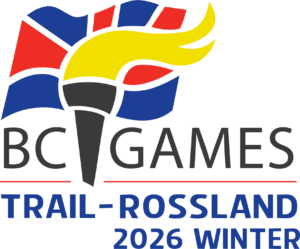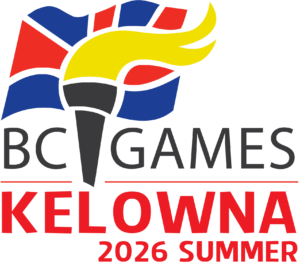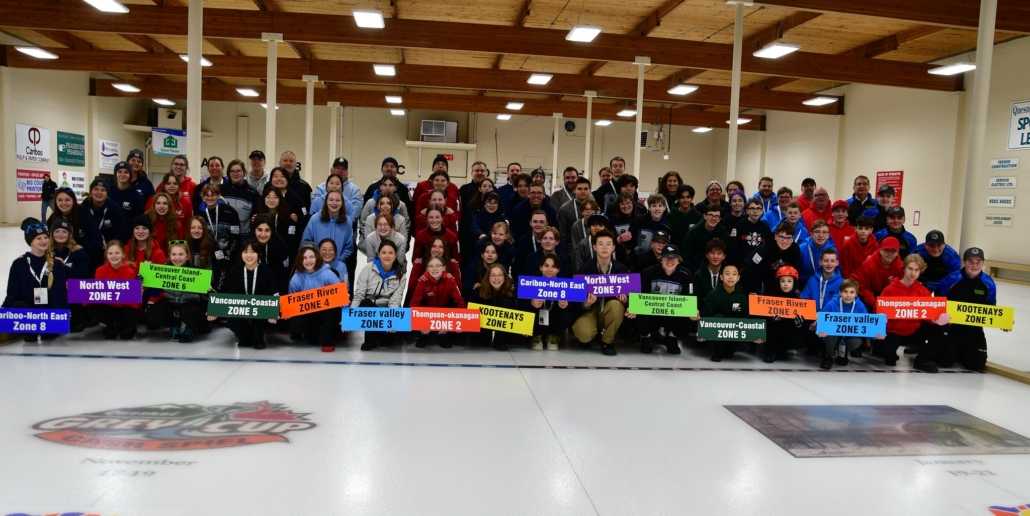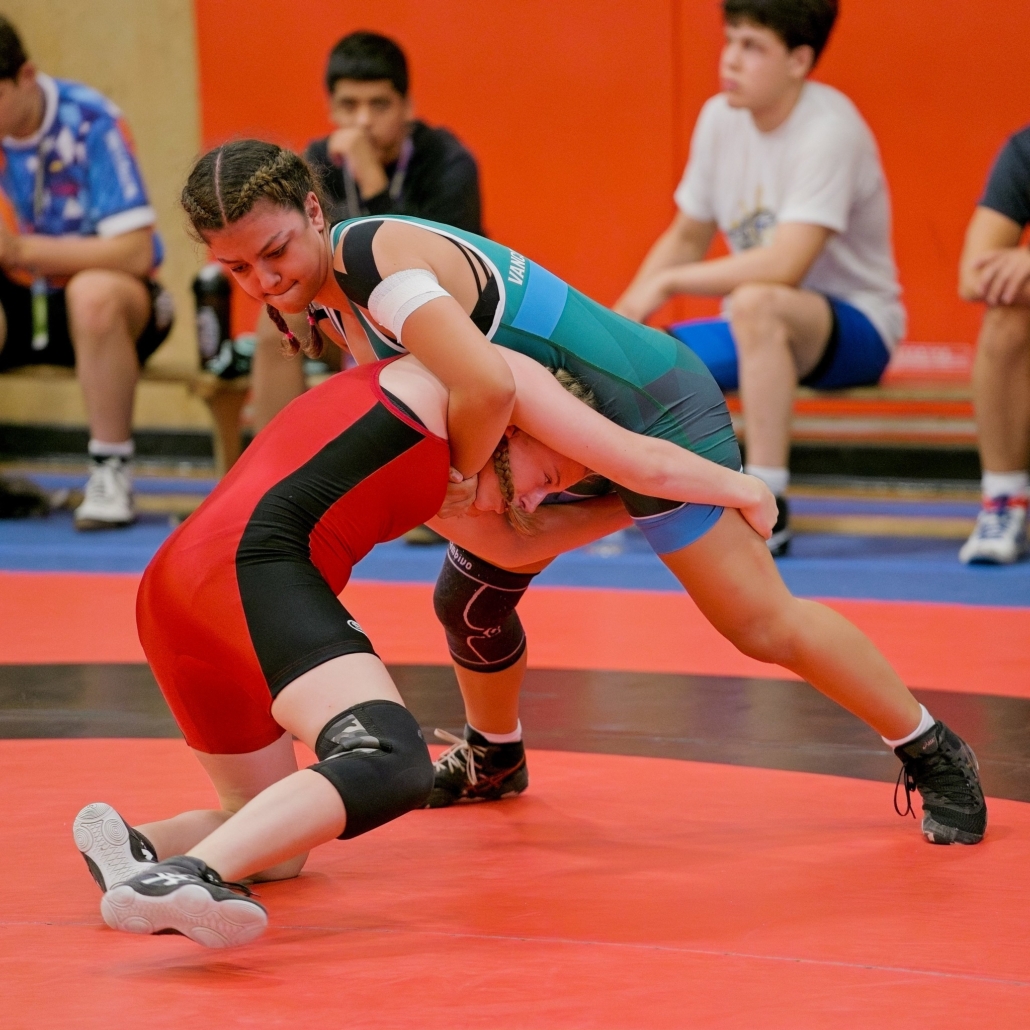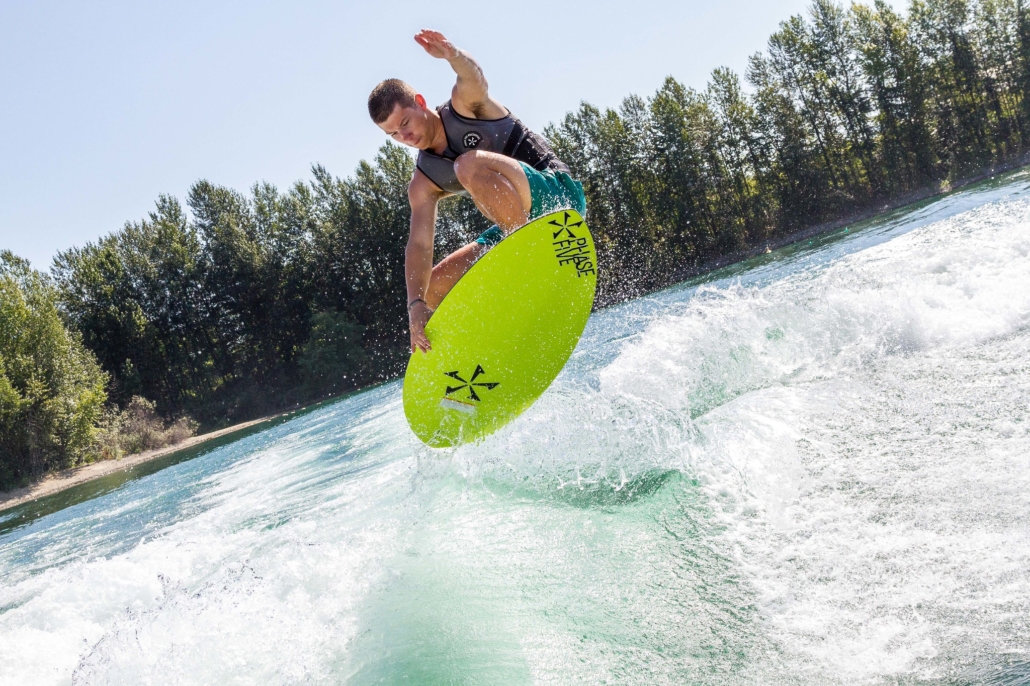Let’s get technical!
Sports are required to submit and maintain technical requirements for their participation in the BC Games through the sport Technical Package, as well as inform the BC Games Society of its minimum facility requirements.
Technical Packages are developed in collaboration with the Society and form the foundation for sport delivery at the Games.
Key Elements
Key elements of technical packages include how competition will be structured and delivered, athlete and coach eligibility, requirements for safe and equitable sport delivery, and more.
Athlete Allocation
Sports are required to submit their total athlete allocation as part of their initial Games application or the Major Change process. This allocation is reviewed as part of Technical Package development.
The BC Games Society encourages and expects sports to propose athlete allocations that reflect balanced participation across genders. While balanced representation is the desired standard, it is recognized that participation trends and program structures may vary by sport. Allocations should demonstrate an inclusive approach and, where applicable, outline any efforts to support equitable access and development opportunities for all participants.
Zone-Restricted Allocations
Sports must propose a fixed number of athlete allocations restricted to each zone. Zone-restricted allocations must be equal in all eight zones and must be an even number. A sport is not permitted to have any zone(s) with more or fewer zone-restricted allocations than any other zone. These allocations can only be used by athletes who meet the residency requirements for that zone under the General Rules.
This structure reflects the BC Games Society’s commitment to province-wide participation. By protecting allocations for athletes in every zone, sports are encouraged to actively develop programs and athlete pathways in all regions of the province. Equal representation ensures opportunities for young athletes across British Columbia to engage in multi-sport Games and supports the broader goal of equitable sport development.
Wildcards
Wildcards are additional athlete allocations that are unattached to any one zone. Sports have the discretion to allocate wildcards as appropriate. A maximum of 20% of the total athlete allocation, or the equivalent of two zones, may be assigned as wildcard spaces.
| Zone-restricted Allocations per Zone | Total Zone-restricted Allocations |
Maximum Wildcards |
Total Athlete Allocation |
| 2 | 16 | 4 | 20 |
| 4 | 32 | 8 | 40 |
| 6 | 48 | 12 | 60 |
| 8 | 64 | 16 | 80 |
| 10 | 80 | 20 | 100 |
| 12 | 96 | 24 | 120 |
| 14 | 112 | 28 | 140 |
| 16 | 128 | 32 | 160 |
| 18 | 144 | 36 | 180 |
| 20 | 160 | 40 | 200 |
| Table continues in increments of two per zone as needed. | |||
Only individual sports are permitted to use wildcard allocations. These sports are not required to use wildcards and may request fewer than the maximum permitted. The practice of backfilling (reassigning unused zone-restricted allocations as wildcards) is strictly prohibited.
Replacement Teams
If a zone is unable to field a team in a team sport, the PSO/DSO may propose the use of a replacement team. All replacement teams must be approved by the BC Games Society in advance.
Replacement teams:
-
-
- Do not increase the total athlete allocation for the sport.
- Must be composed of eligible athletes as defined by the General Rules and Technical Package.
- Are only approved when required to balance the competition schedule.
-
For example, if only seven zone teams are confirmed, a replacement team may be approved to create an eight-team draw. However, if only six zone teams are confirmed, a replacement team will not be approved, as a six-team schedule is already balanced.
A replacement team may consist of:
-
- A second team from a single zone, or
- A combined team of eligible athletes from two or more zones.
If proposing a combined-zone team, the PSO/DSO must include a detailed explanation of how the team will operate, including coaching structure, athlete selection, and overall management including adherence to the Team Travel Policy.
Coach Allocation
Sports (including team sports with athletes with a disability) are required to name a minimum of one head coach and one assistant coach per zone. Sports may apply to include more than two coaches per zone to meet coaching and supervision requirements, in which case these additional participants would be considered assistant coaches or adult supervisors, in consultation with the sport.
Individual sports with athletes with a disability are required to name a minimum of one head coach and one assistant coach for the entire sport.
The BC Games Society encourages coaching staffs that reflect the diversity of their athlete contingent. Given the important supervisory role coaches play at the Games, it is expected that sports will assign coaches who reflect the gender identities of the athletes they are responsible for. This ensures safe, comfortable, and respectful environments for all participants. Sports should consider this requirement when planning coach recruitment and zone team composition.
Officials’ Allocation
Sports are required to provide the minimum number of certified officials required to safely and fairly conduct competition. The number must be based on the proposed competition structure and outlined in the Technical Package.
All sports are required to name a Provincial Advisor who serves as the primary liaison between the PSO/DSO and the BC Games Society. This individual is required to attend the Games but is not included in the officials’ allocation.
Athlete Eligibility
Age eligibility and LTD stage alignment
All sports must propose an age eligibility range aligned with the Train to Train stage of Long-Term Development (LTD). Age eligibility should reflect meaningful athlete development opportunities and ensure fair and safe competition.
The standard age eligibility range is two years, which supports the goal of athletes attending the BC Games only once. However, a broader range (three or more years) may be proposed if it aligns with the sport’s Train to Train stage and maintains the principle that athletes should participate in only one BC Games. If a broader range is used, the sport should outline how selection would be carried out to ensure athletes attend the Games when their skills are at the optimal level for the competition at the Games.
Age eligibility may differ for male and female athletes, provided this is aligned with the sport’s LTD model.
Single-Games Attendance
Athletes are permitted to attend only one BC Games in a single sport. An exception is made for athletes with a disability, who may attend up to two BC Games in the same sport, provided they continue to meet all eligibility requirements.
Athletes may participate in multiple BC Games if they are competing in different sports, provided they meet the eligibility requirements for each sport.
Coach Requirements
Qualification Requirements
All sports in the BC Games are required to maintain minimum coach qualification requirements which must be submitted as part of the Technical Package. These requirements are:
-
- Head coach – NCCP Competition Introduction certified (or sport-specific equivalent)
- Assistant coach – NCCP Competition Introduction trained (or sport-specific equivalent)
- Adult supervisors – CAC Safe Sport Training
The BC Games Society, through the Coach Exemption Process (see Appendix D), allows the opportunity for sports to bring coaches to the Games who do not meet the coach qualification requirements. This process is intended to establish an obtainable reporting structure for Provincial Advisors, while also holding sports accountable to coaching qualification standards and the coaching development criterion of the Core Sport Policy. Regardless of any coach exemptions granted, all coaches are required to have completed NCCP Make Ethical Decisions Training or CAC Safe Sport Training. There will be no exceptions to this requirement.
Selection and Screening
PSOs and DSOs are responsible for selecting and screening all coaches, including adult supervisors. This includes ensuring that coaches have passed a Criminal Record Check and are aware of their roles and responsibilities at the Games. In addition to meeting BC Games Society standards, coaches must also meet any sport-specific screening requirements established by their PSO/DSO. These may include reference checks, interviews, code of conduct acknowledgements, or other vetting processes aligned with Safe Sport principles.
Zone Qualifications
Sports are required to establish and manage a clear process for zone qualification or athlete selection. This process must:
-
- Be public, transparent, and well-communicated to athletes, coaches, and families across the province.
- Be owned and administered by the PSO/DSO, independent of the BC Games Society. Because the process is PSO/DSO owned:
- The PSO/DSO may charge a tryout fee, provided it is reasonable, reflects actual costs, and is clearly disclosed in advance.
- All athletes participating in the qualification process must be registered members of the PSO/DSO in good standing.
The BC Games Society expects that PSOs and DSOs actively promote their qualification process across all zones to ensure equitable access and awareness for all eligible athletes.
Minimum Facility Requirements
Sports must provide the BC Games Society with their Minimum Facility Requirements as part of the application process and when requested thereafter. These requirements should reflect:
-
- The minimum acceptable standards for safe, fair, and LTD-appropriate competition, within the scope of what can be delivered in a grassroots multi-sport Games model.
- Flexibility and recognition of the range of obtainable facilities available across British Columbia, ensuring available of facilities in all zones.
- A focus on essential requirements over preferred or optimal features.
The BC Games Society will work with Host Societies to identify appropriate venues within a two-hour radius of the host community. If a sport’s Minimum Facility Requirements cannot be met, that sport may be granted a Games off without impacting its sport classification.
Competition Structure
Sports are required to propose a competition structure that allows for:
-
- A meaningful competition experience for all qualified athletes.
- Reasonable scheduling over the course of the Games, including opportunities for training, competition, and development opportunities on Thursday, Friday, Saturday, and Sunday of the Games.
- A balanced workload for officials, volunteers, and participants.
- Appropriate medal distribution opportunities.
Competition structures must be clearly outlined in the Technical Package and may include formats such as round-robin, pool play, or individual heats. All structures are subject to approval by the BC Games Society.
